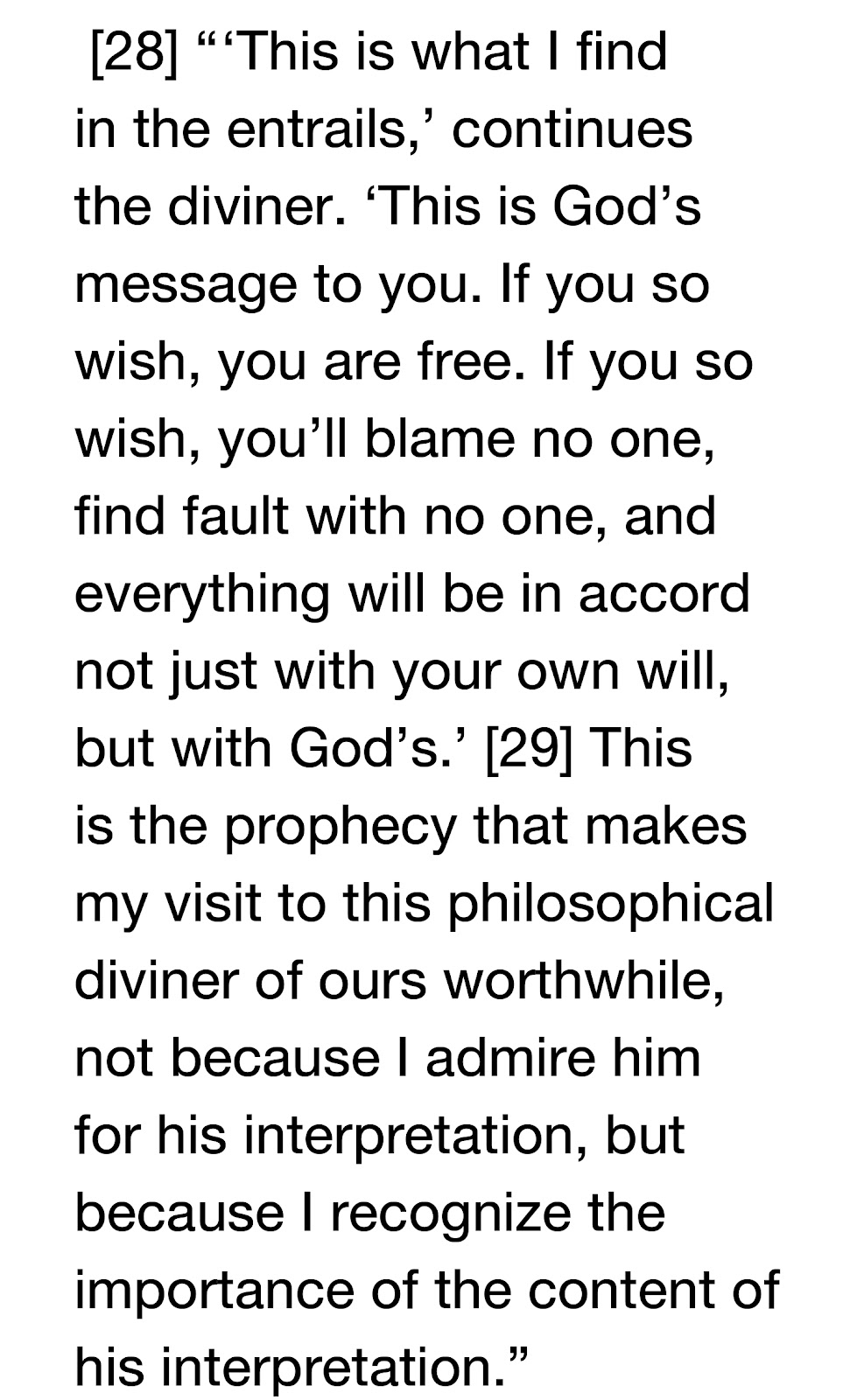240427 What I learned in my studies this morning 4*
Today's Meditation(s):
Discourses, 1.17.28-29 (Waterfield)
This should be a touchstone, a shibboleth, by which Stoics in the early part of the twentieth century tell who is a traditionalist-to-a-fault and who sees the project as requiring an update in the face of mistakes made re the fundamental nature of reality.
Divination? Really? Entrails? Augeries? Portents? Some (accidental) foreshadowing by a ham-handed author (if it's right) or (more likely) gauzy words distracting us from seeing what is really happening (when it's wrong)?
Why is this still here, given our understanding of the world? We could argue, per Epictetus that the method by which he demonstrates his point is not as important as the point itself.
Ok. So, what about replacing the premises so that the supernatural is unnecessary? Seems to me that Epictetus didn't do things the hard way when an easier path was available. If he had a prosaic pin upon which to linch this crux of the argument, why didn't he use it?
Nevermind. I've was up waaaaay too late last night.....
Because, numbnuts, Epictetus was trying to make it understandable to the listener of his time. An auger, while utterly unimportant to the derivation of the syllogism, gave the first-century Roman something familiar to use as a hitching post for a concept. It's the connection that's important, not the material by which I fashion the loop and draw of the knot.


Comments
Post a Comment
Please note that I am not saying I agree or disagree with what is posted above. It is merely a recording of what I read this morning.